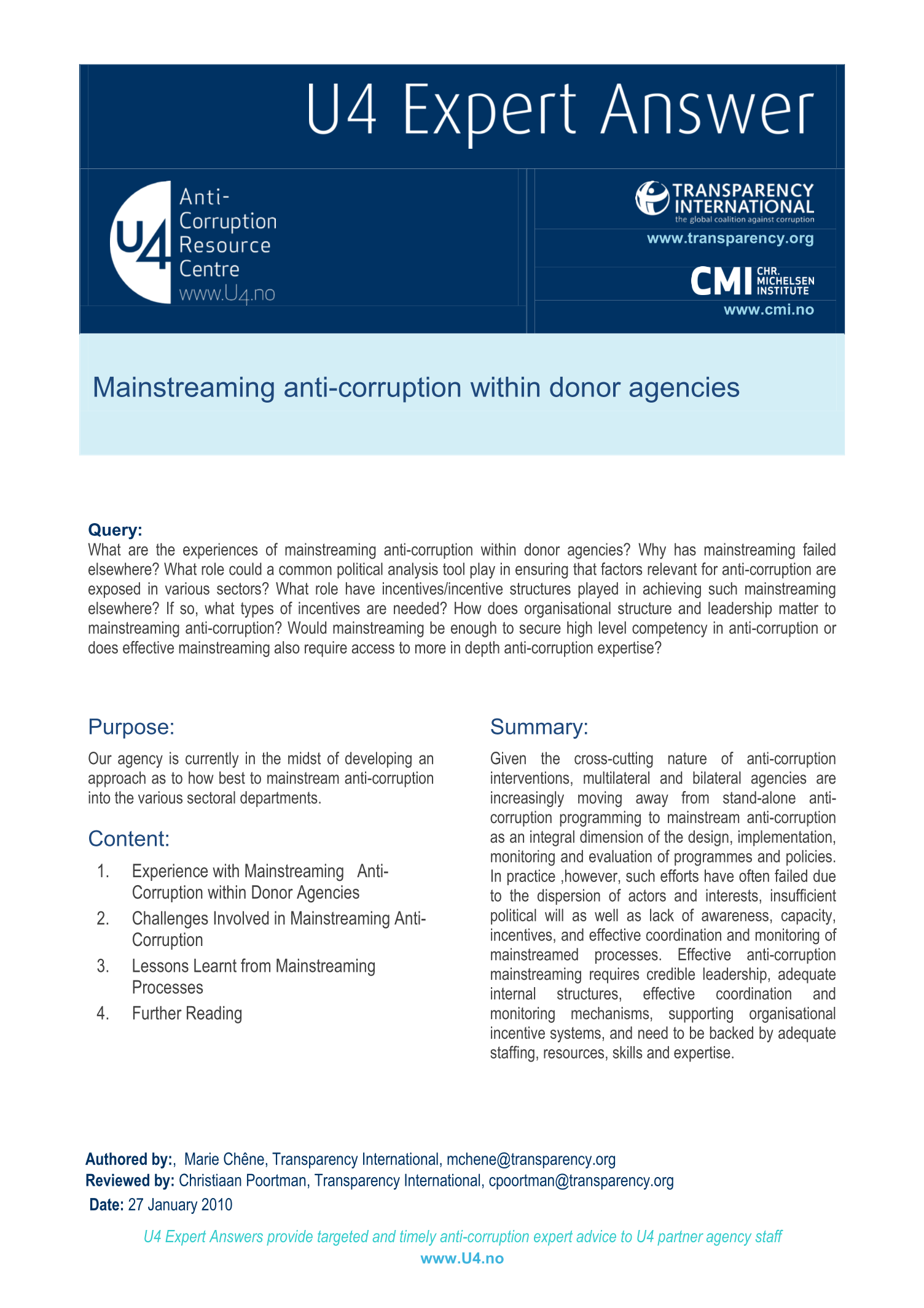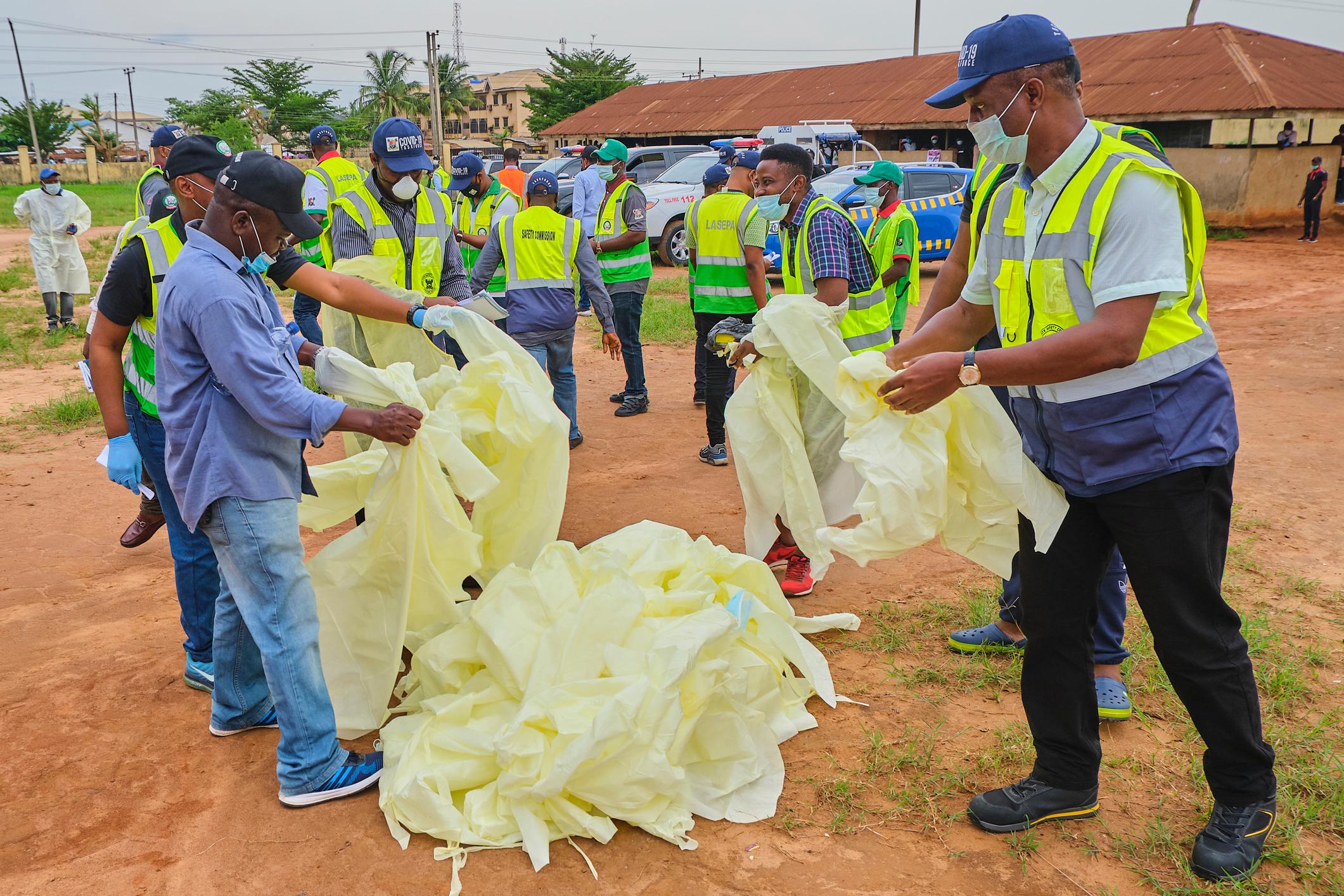U4 Helpdesk Answer
Mainstreaming anti-corruption within donor agencies
Given the cross-cutting nature of anti-corruption interventions, multilateral and bilateral agencies are increasingly moving away from stand-alone anti-corruption programming to mainstream anti-corruption as an integral dimension of the design, implementation, monitoring and evaluation of programmes and policies. In practice ,however, such efforts have often failed due to the dispersion of actors and interests, insufficient political will as well as lack of awareness, capacity, incentives, and effective coordination and monitoring of mainstreamed processes. Effective anti-corruption mainstreaming requires credible leadership, adequate internal structures, effective coordination and monitoring mechanisms, supporting organisational incentive systems, and need to be backed by adequate staffing, resources, skills and expertise.

Cite this publication
Chêne, M. 2010. Mainstreaming anti-corruption within donor agencies. Expert Answer 231
Disclaimer
All views in this text are the author(s)’, and may differ from the U4 partner agencies’ policies.
This work is licenced under a Creative Commons Attribution-NonCommercial-NoDerivatives 4.0 International licence (CC BY-NC-ND 4.0)


